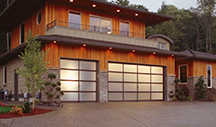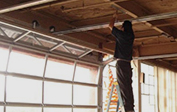 Does your garage door make loud noise?
Does your garage door make loud noise?
Do you cringe at the ungodly racket that comes from your garage door when it opens and closes?
Are your neighbors starting to talk about the clatter coming from your garage door?
If the answer to any of these questions is, yes, we offer our sympathies. No one should be subjected to that kind of violent screeching, earsplitting clanking, or piercing grating. There are tune-ups you can do on your garage door, however, that will help you identify and fix your problem.
Below are checkups for your garage door. These inspections will take less than an hour.
Easy Examinations
Tattered garage door hinges are a common source of din. They can also make your garage door bind and wear down the garage door joints, especially around the door sections. When inspecting for deteriorated hinges look for metal filings and gray dust.
If you discover worn hinges call an experienced garage door technician to repair them. If you don’t have the proper training or correct tools we don’t recommend you do it yourself.
Check your opener chain – it might be the source of the fracas. A loose chain makes raucous smacking noises. Furthermore, it causes the door to make bumpy movements that can slap the rollers against the track. If you run into this problem we advise you to contact a reputable garage door company for help. Again we don’t think you should turn this into a DIY project.
Lubricate Your Garage Door Parts
After you examine the hinges and opener chains, lubricate the parts of your garage door. Use lubes like Prime Flo Garage Door  Lubrication Kit. Stay away from lubricants like grease, oil, or spray lithium grease. Although they’re less expensive, they don’t seep in thoroughly. Instead, they collect dust and grit, which is terrible for moving components.
Lubrication Kit. Stay away from lubricants like grease, oil, or spray lithium grease. Although they’re less expensive, they don’t seep in thoroughly. Instead, they collect dust and grit, which is terrible for moving components.
Make sure to lube down your garage door track. If you have a screw drive garage door opener, smear the threads. Oil your garage door springs and roller bearings (if they’re unsealed). Hit any pivot points, as well.